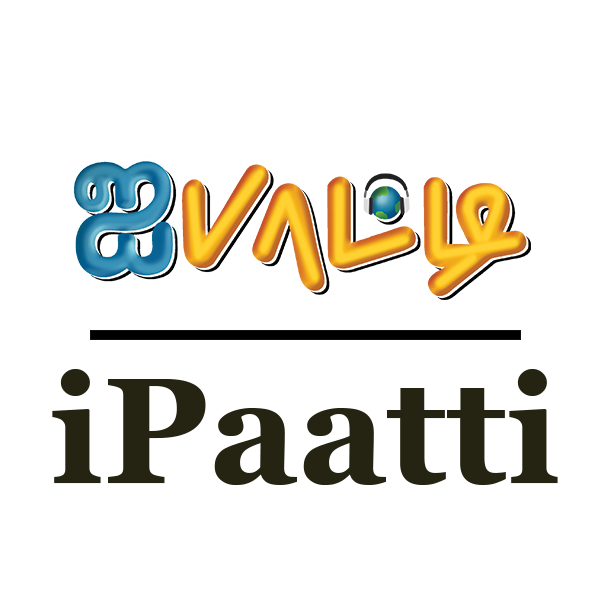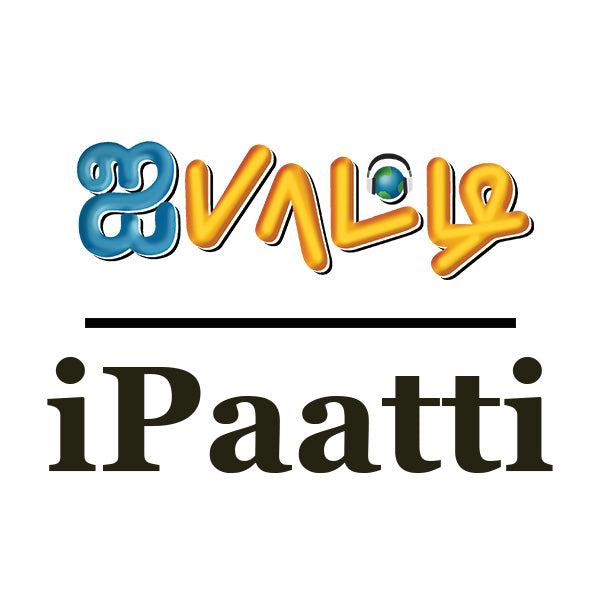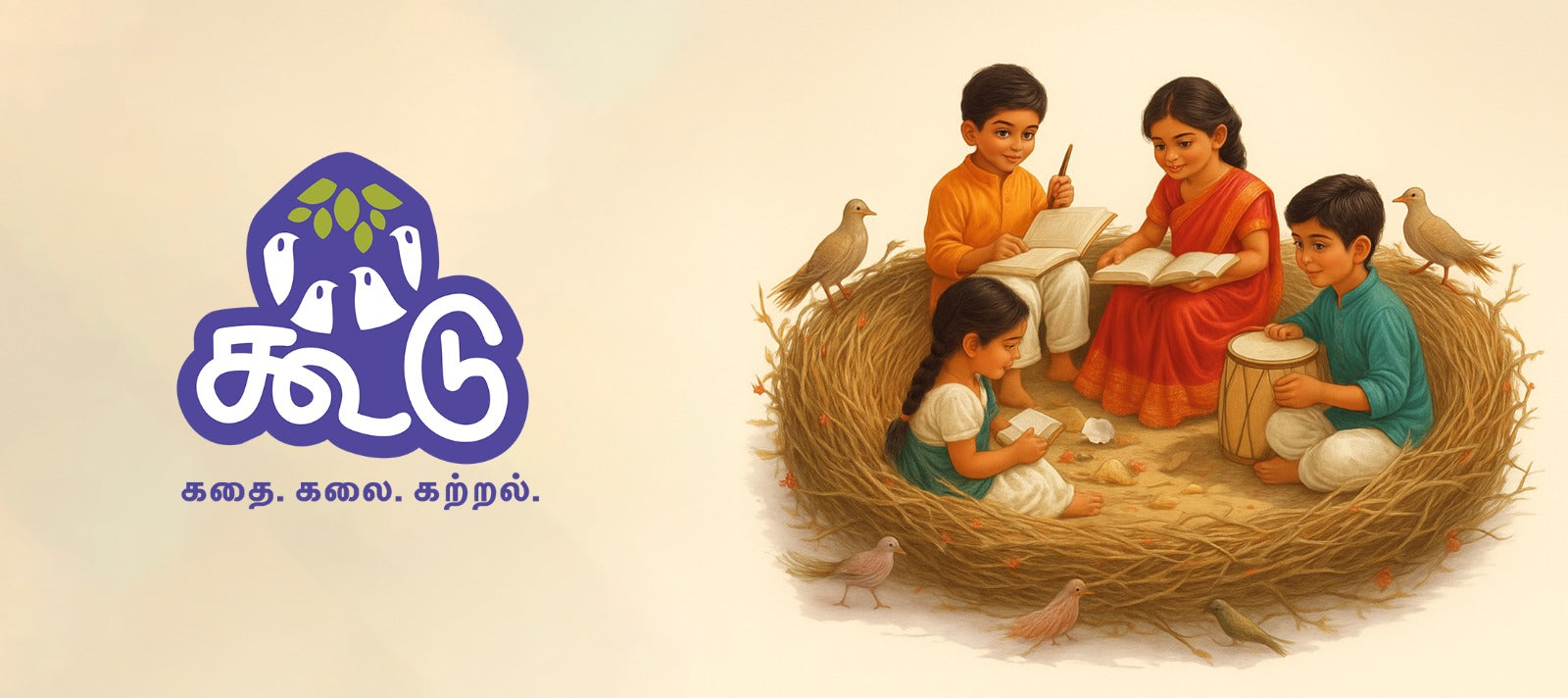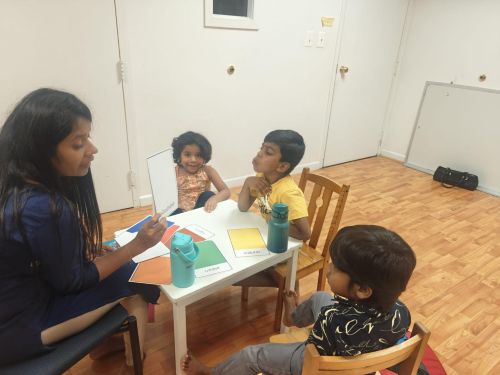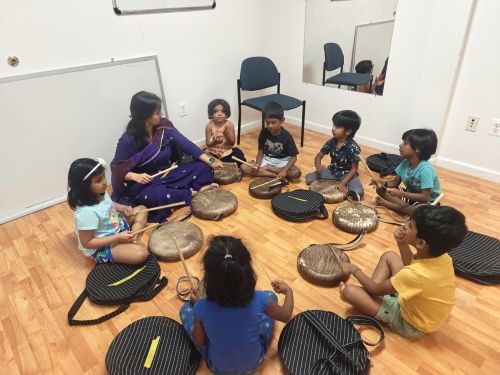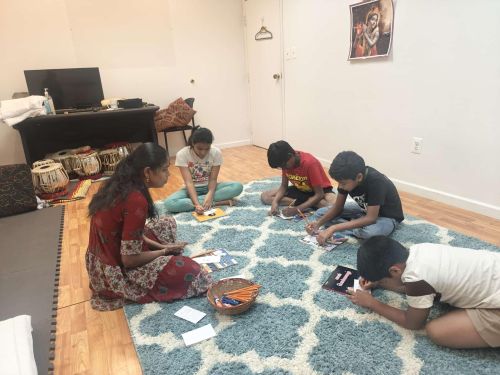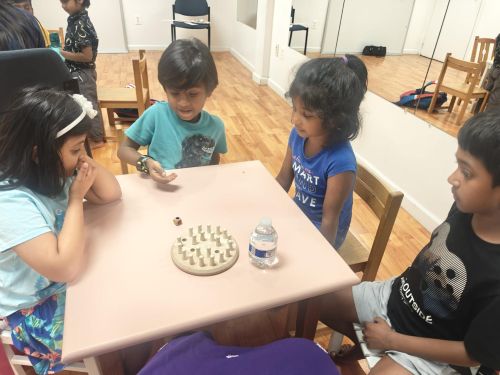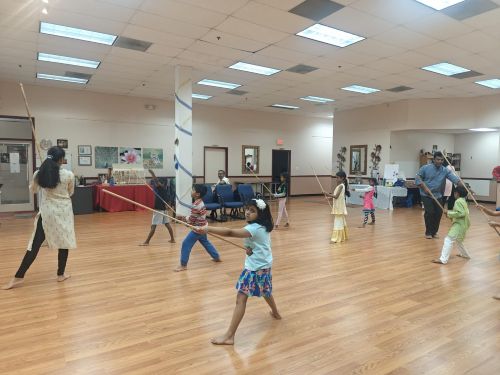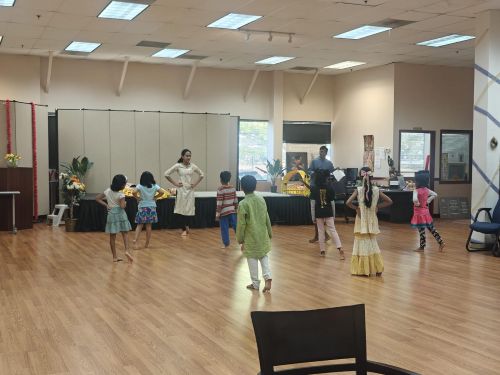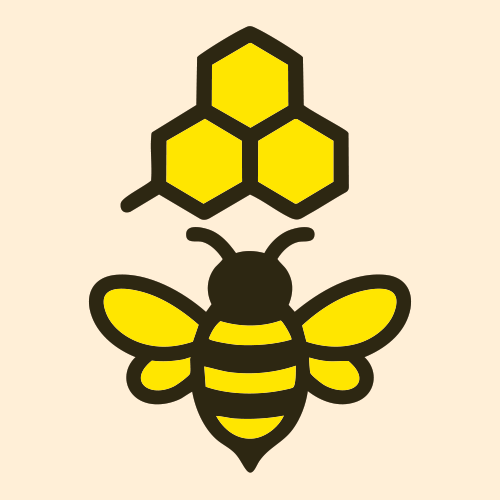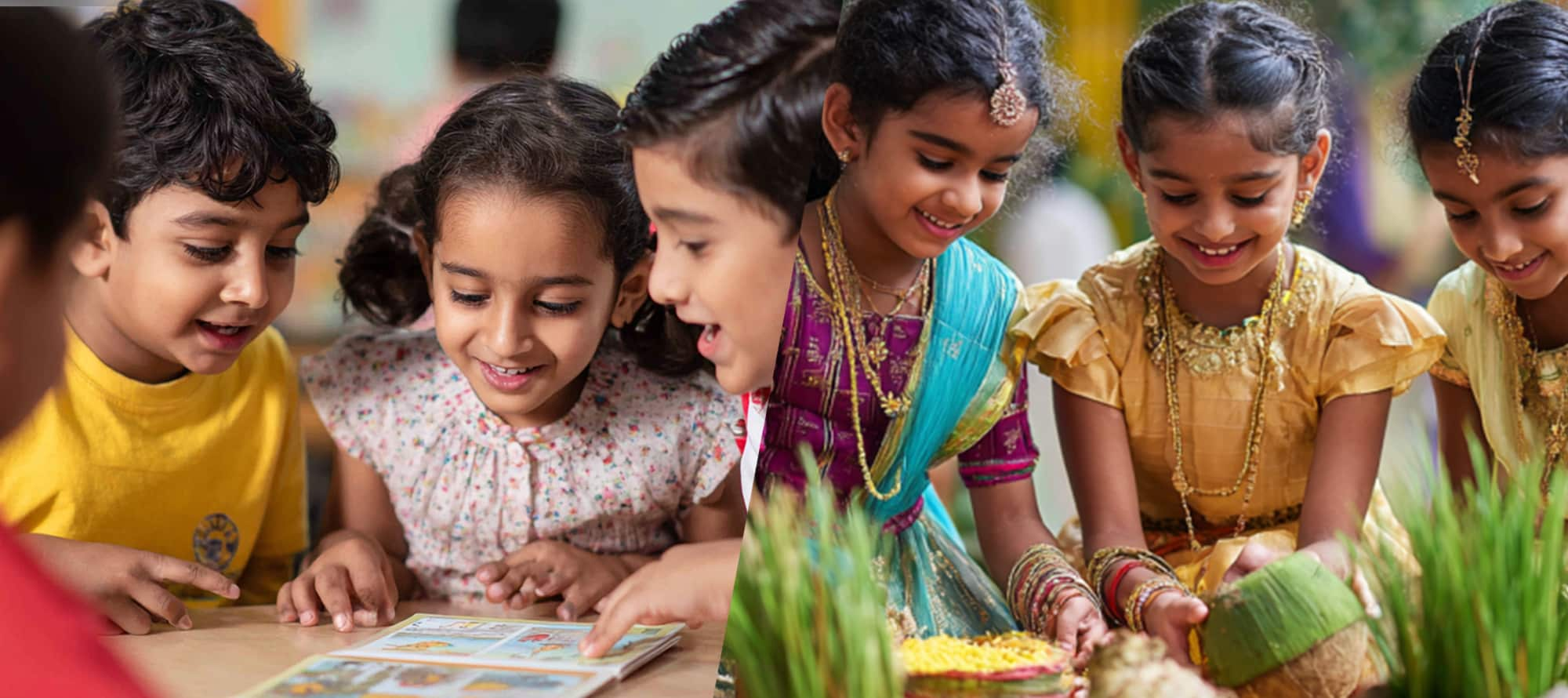Introducing Ipaatti's Tamil School - Where Children Learn to Love Tamil
After a decade of creating Tamil learning tools used by schools and families around the world, Ipaatti is proud to launch its very own Tamil school — a space where Tamil learning meets creativity, culture, and joy.
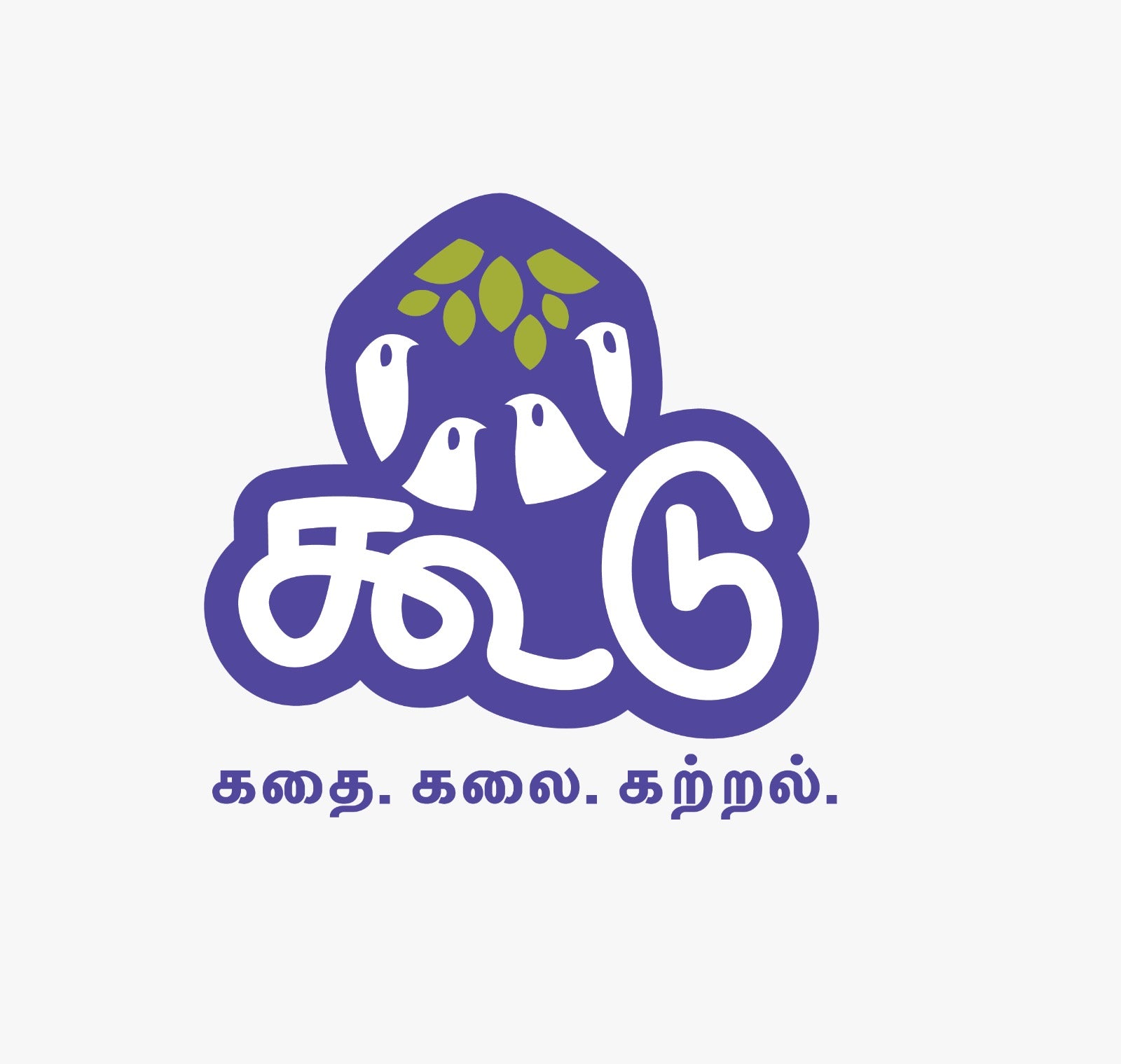
கூடு (Tamil School)
தமிழ் கற்றலுக்கான ஒரு புதிய வழிகாட்டி – "கூடு" தமிழ் பள்ளி!
குழந்தைகளின் உள்ளத்தில் தெளிவும், தமிழின் இயல்பும் ஒன்றிணையும் இடம் இது …
"கூடு" என்பது ஒரு வழக்கமான பள்ளி அல்ல, இது செயல், கலை, மற்றும் மரபு மூலமாக தமிழ் மொழியை குழந்தைகளுக்கு இனிமையாகவும், ஆர்வத்துடனும், ஆழமாகவும் கற்றுத் தரும் புதுமையான நிகழ்விடம்!
📍 Location: India School & Cultural Center, Chantilly
🕐 Time: Saturday 1:30 PM – 4:30 PM
Why Now?
Tamil schools across the U.S. face dropout rates as high as 80–90% between Grades 1 and 5. The reason? Outdated methods, rigid instruction, and a lack of excitement around the language. We’re here to change that — with a program that puts children’s curiosity, expression, and connection to Tamil at the center.
What Makes Us Different?
At Ipaatti Tamil School, we believe Tamil is not just a subject — it’s a living, breathing experience. Our curriculum is the result of over a decade of research and innovation in Tamil language education, powered by Ipaatti’s learning tools used in 50+ schools across the world.
We move far beyond rote memorization. Instead, we offer a vibrant, experience-rich journey that helps children truly understand, use, and love the Tamil language.
A Curriculum that Adapts to the Child
No two children learn the same way — and we embrace that. Our immersive, activity-based curriculum celebrates each child's unique learning path. We blend Montessori methods, storytelling, performing arts, and interactive games to build a strong foundation in listening, speaking, reading, and writing.
Natural Language Acquisition Through Culture and Play
Children acquire Tamil naturally through real-world, culturally rich experiences, nurturing curiosity, confidence. Every session is carefully designed to integrate core Tamil language skills with movement, music, stories, roleplay, and crafts — making each class joyful and memorable.
Backed by 10+ Years of Proven Innovation
Our sessions are powered by the very same tools trusted by educators worldwide — now brought together in a cohesive, complete curriculum. From magnetic letter kits to grammar games and original Tamil storybooks, every element has been classroom-tested, child-approved, and curriculum-aligned.
A Holistic Tamil Learning Experience for your child
At Ipaatti Tamil School, our Tamil classes go far beyond the textbook. Each session is hands-on, engaging, and deeply rooted in language, culture, creativity, and real-world use. We weave the richness of Tamil tradition into every learning experience helping children not just learn Tamil, but truly live it.
Why It Works?
Children don’t just learn Tamil because at Ipaatti, it is not just language learning - it’s language living. Here, every lesson becomes a story, a game, a rhythm, a discovery.
We Integrate Tamil Seamlessly into Every Activity
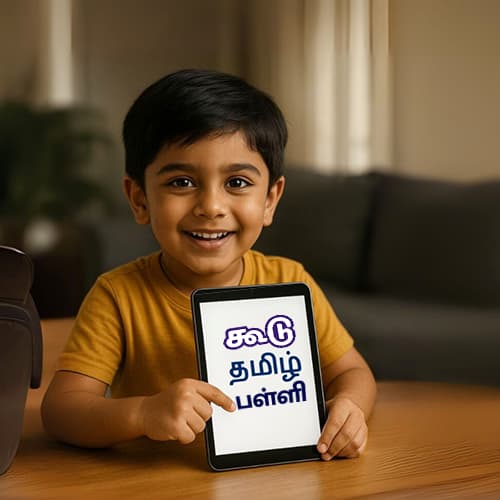
மொழி
சொற்கள் மற்றும் சொற்றொடர்கள் பயிற்சி குழந்தையின் மொழி திறனை வளர்க்கும். வாக்கிய அமைப்பு மற்றும் சிந்தனையும் மேம்படும். பேச்சுத் திறன் வளரும், உரையாடல் இனிமையடையும்.
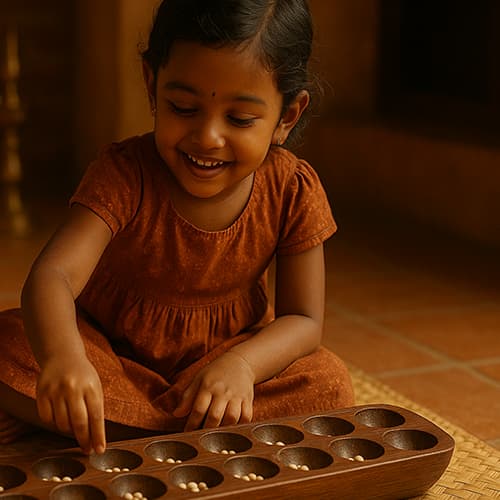
விளையாட்டு
குழு மற்றும் தனிப்பட்ட விளையாட்டுகள் மூலம் உடல் இயக்கம், மனவளர்ச்சி, எச்சரிக்கை, கணக்குப் பழக்கம், நினைவு மற்றும் படைப்பாற்றல் மேம்படும்.
விளையாட்டை விவாதம், சவால், சிந்தனை மற்றும் கேட்கும் திறன் பயிற்சிகளில் பயன்படுத்தி கூட்டுறவும் சமூக அறிவும் வளரும்
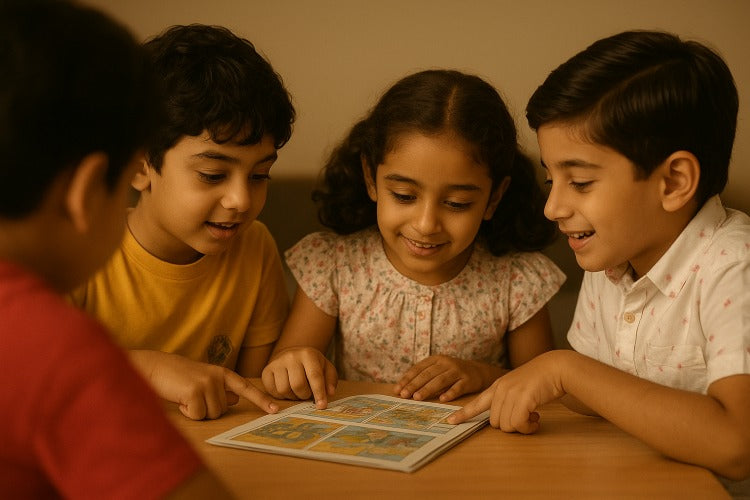
கதை
விரிவான கதைகள் மற்றும் அனுபவக் கதைகள் கேட்கும் திறன், நினைவாற்றல் மற்றும் சொல்வளத்தை மேம்படுத்தும்.
கதைகளை ஆராய்ச்சி, விவாதம் மற்றும் விளையாட்டு செயல்களில் பயன்படுத்தி சிந்தனை மற்றும் விமர்சன திறனையும் வளர்த்தல்.
Enriched by Tamil arts and culture, our sessions help children
Build confident spoken Tamil through storytelling, songs, and puppetry.
Connect with tradition through Parai, Kolattam, Oyilattam, and creative arts.
Explore language through nature, festivals, science, and daily life.
Grow as collaborators and leaders in cultural and classroom settings.
Our Programs At A Glance

FAQs
1. How are the classes grouped?
Children are grouped by age ranges (4–6, 7–9, 10–12, 13+) so lessons match their learning stage. Within groups, activities are flexible so each child can learn at their own pace.
2. What is taught in each class?
Each class brings together Language, Culture, and Arts in an engaging way:
- Ages 4–6: Songs, playful games, storytelling, and early letter recognition.
- Ages 7–9: Sentence building, imaginative storytelling, creative crafts, and role play.
- Ages 10–12: Reading practice, creative writing, and hands-on cultural projects.
- Ages 13–15: Research-based projects, book publishing, mentoring younger learners, and exploring Tamil in modern life.
3. I don’t know Tamil. Can my child still learn?
Yes! Many parents don’t speak Tamil at home. Our program is designed so children can explore and learn independently through immersive activities — you don’t need to teach them at home.
4. My child doesn’t speak Tamil at all. Is that okay?
Absolutely. We welcome beginners. Kids start by listening, repeating words in stories, games, and songs — they pick it up naturally.
5. How much time do I need to spend teaching Tamil at home?
No extra teaching is required. You can simply encourage them by reading storybooks, or asking them to teach you a new word each week.
6. Will there be homework?
No traditional homework. Instead, kids get fun take-home activities like word games, crafts, or a short story to read with parents.
7. Is the Montessori teaching method adopted?
Yes, we are inspired by Montessori principles — activity-based, child-led, hands-on exploration. Each child learns at their own pace through stories, arts, and activities.
8. If my child is already enrolled in another Tamil school, can we join here?
Yes! Many families explore கூடு(Tamil School) as a supplementary or alternative program. We also offer a special $1/month for 3 months for students already in another school.
9. Is there a fixed syllabus?
We follow a structured framework, but not a rigid syllabus. The focus is on speaking, reading, and writing naturally through experiences, not memorization.
10. What traditional arts are taught? Will each class include them?
Yes, all groups learn traditional arts such as:
- Traditional Tamil games
- Silambam (martial art)
- Parai (folk percussion)
- Crafts (kolam, clay work, puppetry)
Each week, one or more arts are integrated into language lessons.
11. How are exams conducted?
There are no stressful exams. Instead, kids demonstrate progress through presentations, storytelling, role plays, and projects.
12. How is children’s progress evaluated?
For younger kids: observation of participation, vocabulary growth, confidence in speaking.
For older kids: reading fluency, creative writing, ability to connect Tamil with culture.
Parents receive progress feedback regularly, not just grades.
13. How are kids prepared for Tamil Language Credit Exams in Virginia?
Our focus is on building strong Tamil fundamentals through Montessori-inspired, activity-based learning. Children naturally develop speaking, reading, writing, and comprehension skills—without rote memorization.
We don’t run separate exam coaching. Instead, exam readiness grows as part of the program. Story-based learning, role play, and writing strengthen reading and written skills, while storytelling, presentations, and discussions build oral confidence.
With regular progress feedback, children stay on track. By the time they reach Virginia Language Credit Exams, they already have the fluency and confidence needed. We put learning first—exam success follows naturally.
14. How is each class structured?
Classes follow a balanced structure:
- Warm-up activity (songs, word games, storytelling)
- Main lesson (story, craft, traditional art, or project tied to Tamil learning)
- Practice & exploration (small group work, games, role play)
- Reflection (kids share what they learned, peer feedback, or a fun recap)
This ensures kids stay engaged and learn in multiple ways.
15. How does peer-to-peer learning help my child?
We encourage mixed-age group activities where older children help younger ones. This:
- Builds confidence in older kids as they explain and guide.
- Helps younger kids learn faster by seeing peers model Tamil naturally.
- Creates a community feel where children learn with each other, not just from a teacher.
16. How is my child’s progress shared with me?
We don’t just give test scores. Instead, parents receive:
- Regular updates from teachers on vocabulary, speaking confidence, and reading skills.
- Project showcases (e.g., your child creates a Tamil storybook or presentation).
- End-of-term reflections where teachers share strengths and areas to support.
- Some sessions even include parent observation days so you can see your child’s growth directly.
17. How can parents participate?
Parents are welcome partners in this journey. You can:
- Join open house sessions & cultural events.
- Volunteer to read a story, share a recipe, or demonstrate a cultural activity.
- Help us build the Tamil library by suggesting/bringing books.
- Simply encourage your child at home by asking them to teach you a new Tamil word each week.
We want parents to feel part of the learning community — not just observers.
18. How does the Tamil Library work?
We are building a Tamil children’s library with books sourced from around the world. Every child will borrow a book each week to read at home. The library will grow with picture books, simple readers, stories, and age-appropriate novels. This ensures children are exposed to authentic Tamil language beyond classroom lessons.
19. How does reading a Tamil book every week help?
Reading a book every week develops:
- Vocabulary growth – children see and hear new words in context.
- Fluency – regular exposure helps them read faster and with more confidence.
- Habit formation – weekly reading makes Tamil part of their daily life, not just a class.
- Parent bonding – families can read together, even if parents don’t know Tamil (with audio support or guidance).
This small, regular practice builds long-term confidence in both reading and writing.
20. How do stories help children learn Tamil?
Stories are at the heart of our program. They:
- Spark imagination and curiosity.
- Create emotional connections, making Tamil meaningful.
- Naturally teach values, culture, and identity.
- Offer material for speaking, role play, and creative expression.
Through stories, Tamil feels alive and joyful—not something to be memorized.
21. Who can join this language school?
கூடு(Tamil School) is open to all children ages 4 -15 — from complete beginners to those who already know some Tamil.
Beginners: Children who do not speak or read Tamil at all can start here. Our activity-based method helps them pick up naturally.
Intermediate learners: Kids who know some Tamil but lack confidence will strengthen their basics and expand vocabulary.
Advanced learners: Older children and teens can explore creative writing, cultural projects, and assist younger kids as peer mentors.
No prior Tamil knowledge is required. Every child learns at their own pace in a supportive environment.
22. Are teachers trained?
Yes. All our teachers undergo:
- Training in activity-based and Montessori-inspired methods.
- Workshops on blending Tamil with arts, crafts, Silambam, Parai, and storytelling.
- Ongoing curriculum sessions to create engaging lessons and resources.
- Guidance in child psychology and engagement strategies to build confidence.
Our teachers are not just instructors but facilitators of joyful learning—guiding exploration, sparking curiosity, and making Tamil meaningful in everyday life.
Let Your Child Learn Tamil the Way They Deserve
Not through textbooks. Not through memorization. But through experience, expression, and joy.
Join us in nurturing a generation that lives, breathes, and loves Tamil — through creativity, movement, culture, and play.
